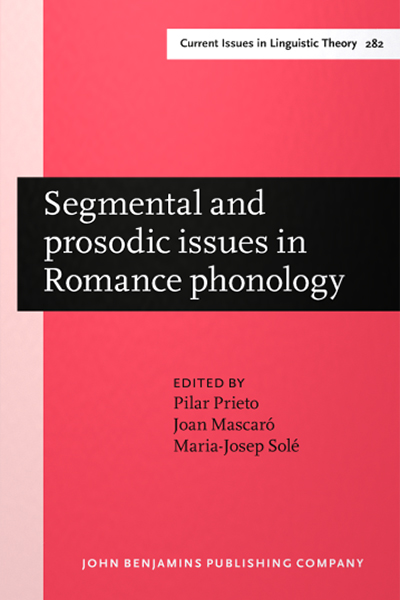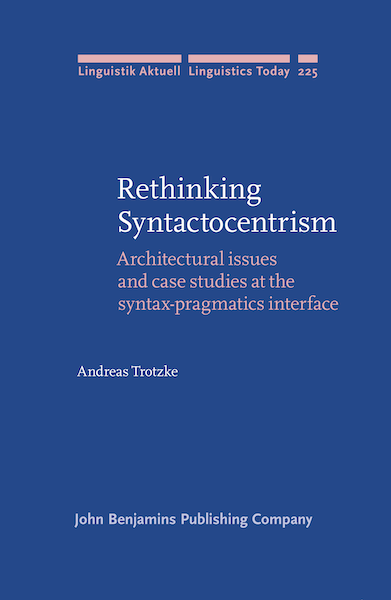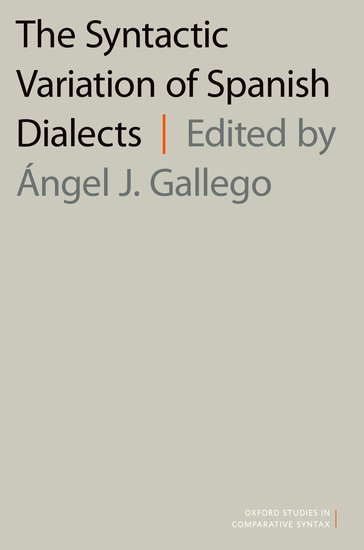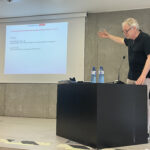Segmental and prosodic issues in Romance phonology

Autors:
Pilar Prieto, Joan Mascaró, Maria-Josep SoléTítol:
Segmental and prosodic issues in Romance phonologyEditorial: John Benjamins Publishing Company
Data de publicació: 2007
Pàgines: 262
ISBN13: 9789027247971
Més informació
This volume is a collection of cutting-edge research papers written by well-known researchers in the field of Romance phonetics and phonology. An important goal of this book is to bridge the gap between traditional Romance linguistics — with its long and rich tradition in data collection, cross-language comparison, and phonetic variation — and laboratory phonology work. The book is organized around three main themes: segmental processes, prosody, and the acquisition of segments and prosody.
The various articles provide new empirical data on production, perception, sound change, first and second language learning, rhythm and intonation, presenting a state-of-the-art overview of research in laboratory phonology centred on Romance languages. The Romance data are used to test the predictions of a number of theoretical frameworks such as gestural phonology, exemplar models, generative phonology and optimality theory.
The book will constitute a useful companion volume for phoneticians, phonologists and researchers investigating sound structure in Romance languages, and will serve to generate further interest in laboratory phonology.








